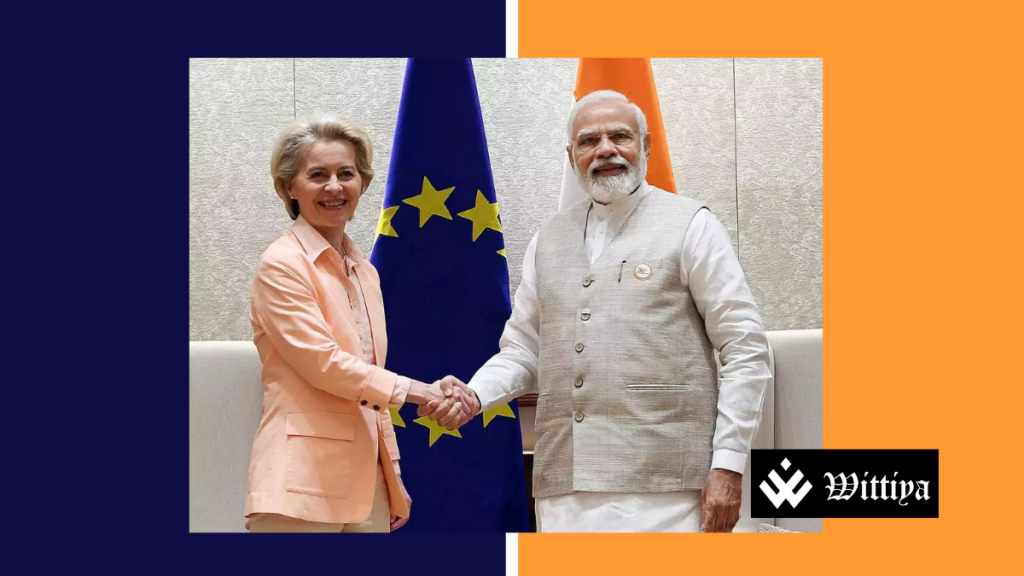India’s trade negotiations with the European Union (EU) have hit a roadblock due to the EU’s stringent environmental and regulatory policies. The Carbon Border Adjustment Mechanism, supply chain due diligence laws, and restrictions on remote service delivery could impose additional costs on Indian exports. Economic think tank GTRI highlights these as major hurdles in finalizing the agreement. India seeks exemptions or adjustments to mitigate financial impacts.
India’s free trade negotiations with the European Union (EU) are facing significant challenges due to strict environmental and regulatory laws imposed by the EU. According to the economic think tank Global Trade Research Initiative (GTRI), measures such as the Carbon Border Adjustment Mechanism (CBAM), supply chain due diligence laws, and restrictions on remote service delivery could substantially increase costs for Indian exports.
The European Union, a major trading partner of India, has implemented rigorous sustainability policies aimed at reducing carbon emissions and ensuring responsible supply chain practices. However, these measures have raised concerns for Indian exporters, who fear increased compliance costs and potential barriers to the European market.
One of the key issues is the Carbon Border Adjustment Mechanism (CBAM), which imposes a tax on imported goods based on their carbon footprint. This measure is expected to affect India’s steel, aluminum, and other energy-intensive exports, as businesses may be required to pay additional levies unless they meet EU emission standards.
Additionally, the EU’s supply chain due diligence laws mandate that companies ensure their supply chains comply with environmental and human rights standards. This regulation is likely to affect Indian businesses engaged in manufacturing and textiles, increasing their compliance burden and operational costs.
The report by GTRI also highlights barriers in the services sector, particularly concerning remote service delivery. The EU requires Indian companies to establish local offices and comply with high salary thresholds for Indian professionals working in European countries. These restrictions limit the ability of Indian IT and service sector firms to expand operations in Europe efficiently.
To address these concerns, India has been advocating for exemptions and compensatory measures in trade talks. Officials emphasize the need for balanced regulations that promote sustainability without creating disguised trade barriers. The negotiations remain ongoing, with both sides working toward a mutually beneficial agreement.
The India-EU Free Trade Agreement has been in discussions for over a decade, with the goal of strengthening economic ties and boosting bilateral trade. However, these recent regulatory challenges pose a significant hurdle to finalizing the deal.
As discussions continue, industry experts suggest that India may need to adapt its trade policies to align with evolving global standards while negotiating favorable terms to protect its economic interests.



